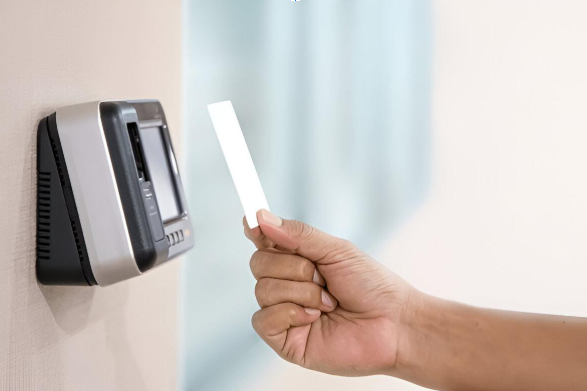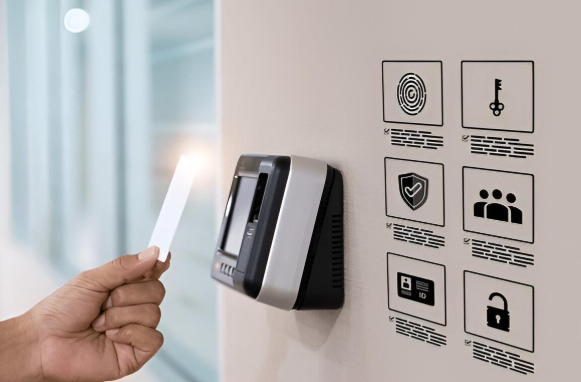Introduction
Traditionally, property owners would employ physical barriers such as fences, guard dogs, or human security personnel to deter unwanted intruders. While such methods may have been effective in the past, they suffer from various limitations. Property owners and security professionals have long dreamed of more intelligent, capable and flexible solutions.
Enter Access Control Systems (UAE), a revolution in property security measures that goes beyond mere physical barriers. By controlling who can access certain areas and when, these systems provide property owners with peace of mind and an unprecedented level of control over their properties’ security.
The Evolution of Security Measures
Property security measures have come a long way from the primitive methods of fences and locks to the more advanced access control systems uae. This evolution has been driven by increasing security challenges, advancements in technology, and the growing need for smarter, more reliable, and convenient ways to protect properties.
The development of ACS has been catalysed by various factors, including the need for real-time monitoring capability, the demand for security scalability, the rise of smart homes and buildings, and the advent of mobile technology. ACS have proven to be flexible enough to accommodate these changing needs, making them an optimal solution for modern-day security.
Understanding Access Control Systems
ACS are integrated solutions that comprise several elements, namely the access control device, databases for storing access credentials, the central control unit, and the end device that operates the mechanical aspects (i.e. the door, gate or barrier). The primary principle of these systems is to grant access only to authorised entities based on pre-set rules.
From keycard systems to fingerprint recognition, facial recognition, to even smartphone-based solutions, there are numerous forms of ACS. Importantly, each offers its unique benefits and drawbacks, and the choice of which to implement will depend on a property’s specific requirements.
How Access Control Systems Have Changed the Game
Access Control Systems offer numerous benefits, such as reduced security manpower requirements, real-time resource monitoring, improved inventory management, and evidence generation for legal protection. Perhaps the most significant benefit is the flexibility that ACS provides. Property owners can quickly alter access permissions based on changing circumstances, something traditional security measures cannot achieve.
The implementation of ACS on a university campus, for instance, helped significantly decrease security breaches. After implementing a system that required students to use identification cards for building access, the university saw reduced instances of theft and increased tracking ability for high-traffic areas.
Making the Switch: Transitioning to Access Control Systems
Transitioning from traditional security architectures to a more advanced ACS system might seem daunting. It’s helpful to begin by understanding your property’s specific security needs and then identifying the ACS that best meets these requirements. Important factors to consider include the size of the property, the number of users, and the desired level of security.
When selecting an ACS provider, pay attention to their past performance, customer reviews, technical support, and overall cost (both upfront and maintenance). These factors combined will help determine a provider that fits your unique needs.
Addressing Concerns: Are Access Control Systems Impenetrable?
While ACS have revolutionised property security, some may question their reliability. There are concerns about hacking and dependence on power sources, among others. However, reputable ACS providers constantly refine their systems and implement stringent security measures to counter these potential vulnerabilities.
Moreover, by incorporating elements such as encryption, two-factor authentication, and backup power supplies, many of these concerns can be mitigated. Experts continuously work on these systems, ensuring they remain robust enough to fend off potential threats and secure your property.
Future Trends in Access Control Systems
With advancements in Artificial Intelligence (AI) and machine learning, the possibilities for ACS are expanding. We might see more intelligent systems capable of learning from behaviour patterns, predicting possible security threats, and even taking preventive measures.
These advancements suggest ACS have the potential to continue revolutionising property security in ways we can hardly envision today. As the AI technology evolves, so too does the potential for even more secure and personalised ACS.
Property security has undergone a significant transformation with the advent of access control systems uae. Convenient, versatile, and reliable, these systems offer a modern solution to age-old security problems. As technology continues to advance, we can expect that ACS will only become more integral to our safety and security needs.











